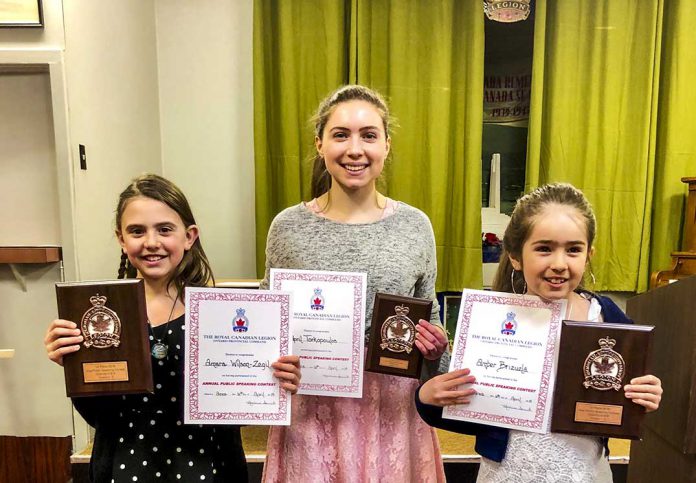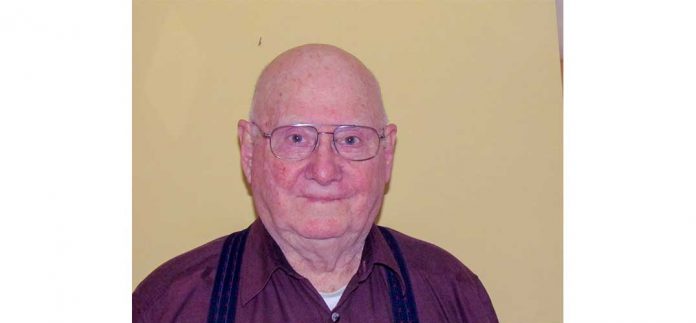LITTLE CURRENT—Close to 100 youth, teens and adults from Manitoulin Island and across Canada convened at the Manitoulin Hotel and Conference Centre in Little Current for the inaugural Wikwemikong Tribal Police Service Youth Empowerment and Safety (YES) conference in late March.
“I’m happy to be part of this today to bring youth together on issues that affect them,” said Terry McCaffrey, the police chief with Wikwemikong Tribal Police Service. “It’s not only in our community but nation-wide that opioid-related deaths have been an issue, especially in and around the Island.”
“The four main ways of dealing with drug and addictions problems are education, prevention, treatment and enforcement—they all work well in concert. We are doing things from the enforcement side, but we have to look to our youth for the education and prevention piece,” he said.
The conference began with an introductory message from emcee Dwayne Animikwan, who stressed that the information the youth gained at the conference “could probably save their life or save someone else’s life someday.”
Anisinabek Nation Grand Council Chief Glen Hare was first to speak after an opening prayer and drum. He got to the heart of his message right away: “I am an alcoholic,” he told the room. Chief Hare used to smoke a pack and a half of cigarettes every day in addition to regular drinking. In 1991, his wife and two friends dared him to do better and he has given up these vices since then.
Among Chief Hare’s main messages were the importance of being open about all the topics with which one is struggling, remaining positive and not trying to follow another’s path.
“Big accomplishments begin with little dreams,” said Chief Hare. He added that the answers to crises such as the opioid epidemic were not easy to find.
“We as leaders and everyone that works in communities, the staff, believe me—we’re screaming for help too. We want to help every one of our youth,” he said.
Chief Hare emphasized the importance of working together as the only way to win the fight against these crises.
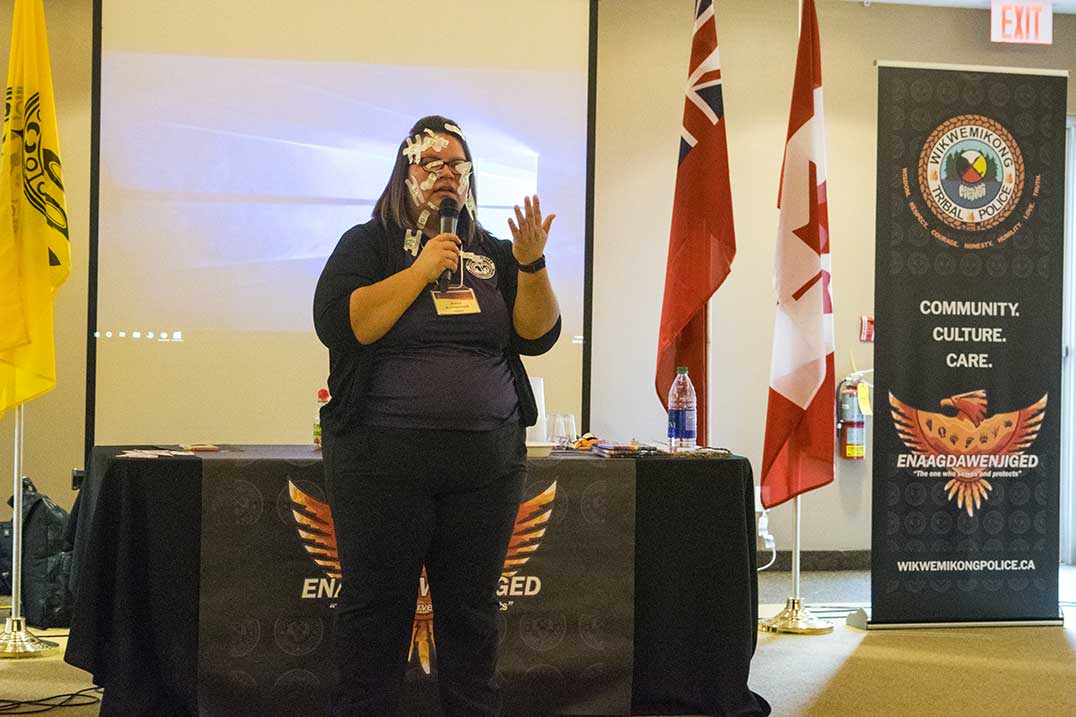
“If we follow the Anishinaabe way, well, look where it got me. I’m proud to be your chief,” he said.
Ontario Regional Chief RoseAnne Archibald and Wiikwemkoong Councillor Marcia Trudeau-Bomberry offered their words next, with Chief Archibald’s address arriving through a video.
Police Chief McCaffrey spoke next, beginning with some statistics about the opioid crisis in Canada. Over the past three years there has been 9,000 deaths, with 2,000 of those occurring in the first six months of 2018. An average of eight people per day die from opioid-related causes.
“These are numbers and statistics that people like myself find concerning,” he said. “You are the future. We need you.”
He premiered a new public service announcement created by students at Wikwemikong High School in collaboration with Debajehmujig Storytellers.
Keynote speaker Tim Ominika stepped to the podium next. The Wiikwemkoong band councillor has been very active in the addictions field for more than a decade and worked to launch a methadone program in the community. He is part of the Centre for Addiction and Mental Health’s internal opiate advisory committee where he advocates for First Nations.
“This is an important day and a great learning opportunity for our youth,” he said.
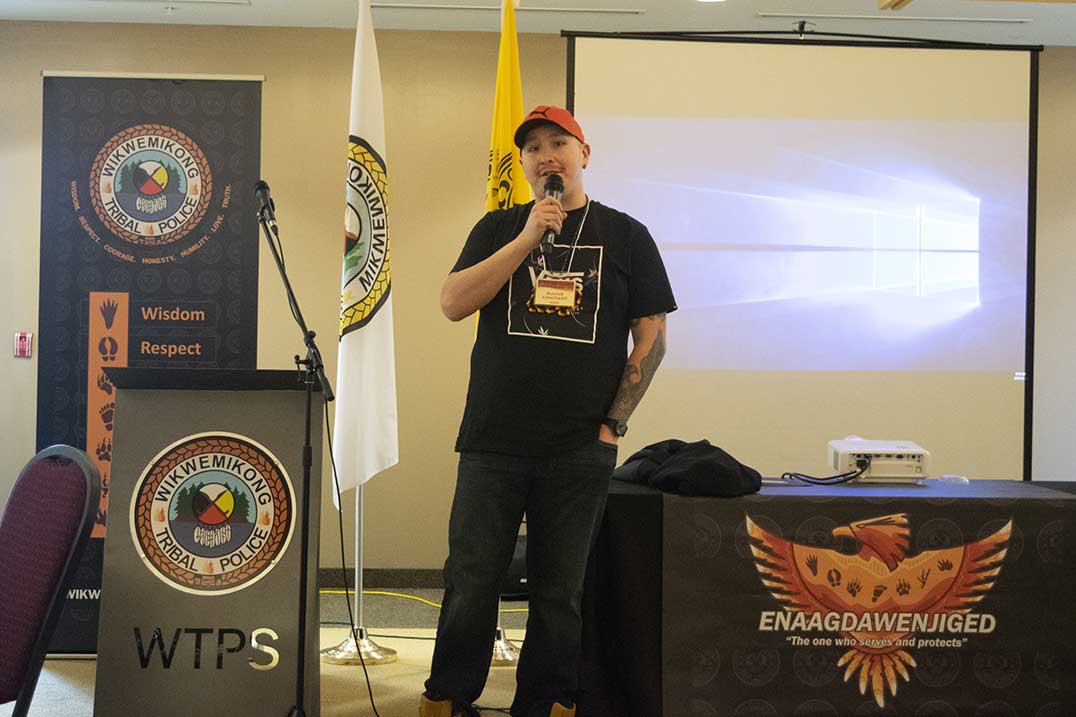
Mr. Ominika shared some statistics about the crisis and said 142 opioid-related deaths occurred in the region last year alone. He cited a study that found 10 percent of respondents had experimented with opioids in the past and said the widespread nature of technology has led to a weaker connection to the land.
“We’re fortunate to have a lot of land in the area which we can utilize. We have to work toward that,” he said.
Much of the former drug strategy used to focus on total abstinence from substances, but Mr. Ominika said the focus has shifted more toward harm reduction.
“Reach out to community leaders, helpers and people within the school system. We need to know what’s going on and your voices are more important,” he said.
There were a myriad of breakout sessions following the keynote address, where participants could choose to attend talks by Wiikwemkoong band members and invited guests including Amy Assinewai, Sylvia Recollet, Mary Elliott and Gracie Mandamin, the Wikwemikong Tribal Police Service, Lisa Osawamick and Katarina Djeletovic.
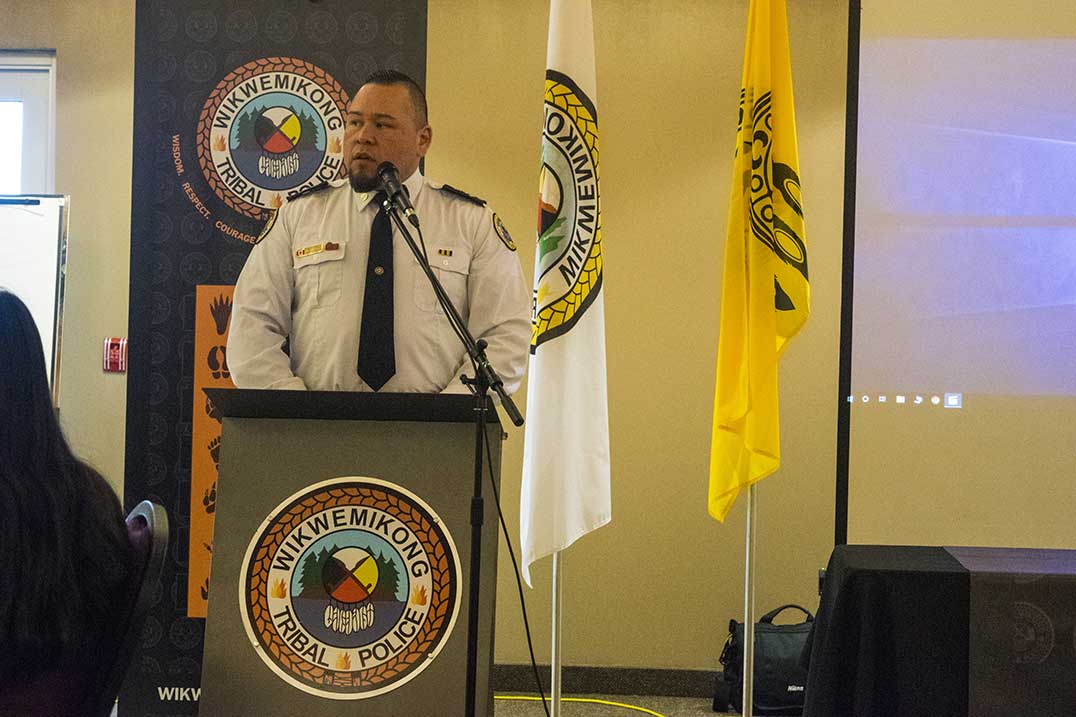
There was also a significant emphasis on musicians who have found their way out of troubled times through their love for the arts, including Cree hip hop artist K.A.S.P. (Rob Sawan) who offered motivational speeches and Anishinaabe-kwe actress, poet and musician Mary Black who delivered sessions on culture and spirituality, finding one’s voice or purpose, education, creative writing and a motivational talk.
Ms. Black attended the conference alongside her husband Blaine Constant, a Cree fiddler who overcame many years of addiction and mental illness and continues to work toward healing. The two perform together under the name Bloodline. Mr. Constant spoke about the power of music as a coping mechanism and also delivered a session about his life story called ‘Opportunity Knocks.’
“I just wanted to be a fiddler for my rez. Now, I’m on the radio, I’ve played for the Queen and for bands. It’s showed me a life I’d never thought possible,” said Mr. Constant.
He shared the story of his childhood with an abusive stepfather who chose to beat his stepson simply because his own father and grandfather had done the same to their children.
“I was afraid of the man I’d become, a monster that’d hit women and children,” he said. That period caused a lot of internalized anger that stayed with him for decades, ultimately leading him to alcohol and drugs for 10 years. At one point he drank night and day for 37 days straight and continued his abuse until he had a near-death experience while using crystal meth for the first time.
“I don’t tell youth ‘don’t do drugs or drink,’ because it doesn’t work. I share what happened to me, because stories of first-hand experiences stick with you,” he said.
Mr. Constant found sanctuary through traditional ceremonies that grounded him back to the person he knew he was. He also shared the importance of small gestures of kindness—such as a smile—that can make major impacts in someone’s life.
“Do what makes you happy. That’s the most important thing in this life,” he said.
Bloodline and K.A.S.P. performed together for a dance party in the evening of the first day of the conference, offering youth the chance to relax and socialize after the heavy-hitting messages of the day.
Police Chief McCaffrey said he was satisfied with how the conference came together and thanked organizers Kerry Assiniwe and Roxanne Recollet for their efforts.
“It’s inspiring to me to see the communities come together like that in the name of the betterment of our youth. That’s our future, we have to invest in that,” he said.


